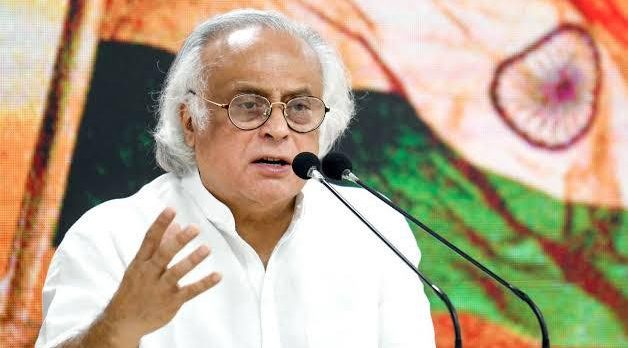 “A Bold-Faced Lie”: Jairam Ramesh Rips Apart PM Modi's Attempts To 'Take Credit' For Disclosure Of Donor Details
“A Bold-Faced Lie”: Jairam Ramesh Rips Apart PM Modi's Attempts To 'Take Credit' For Disclosure Of Donor Details“Every day the Prime Minister scales new heights of hypocrisy and plumbs new depths of dishonesty,” began the statement issued by Congress leader Jairam Ramesh in his scathing fact-checking of PM Modi’s claims of the BJP’s success in disclosing donor details in the electoral bonds scheme.
Jairam Ramesh took to X (formerly known as Twitter) to respond to the PM’s claims of “taking credit for the disclosure of donors.” He stated, “The PM introduced anonymity to electoral financing, presided over large-scale corruption, and attempted to cover it up through the SBI.”
Referring to the claims made by the PM in news channels such as Thanti TV and ANI, Jairam Ramesh listed out a timeline of events regarding electoral bonds and the role of the BJP in them.
He stated that before the electoral bonds were brought in, individuals and corporations had to report donations greater than Rs 20,000. However, once the electoral bonds scheme was implemented in 2017, the donors had no obligations to report donations, and the political parties had no obligations to disclose the donor identities.
“The electoral bond scheme was designed to be fully anonymous,” the Rajya Sabha MP stated. He added, “Modi wanted to hide the details of “where funds have come from [to political parties], and how they are being used.””
After six years (2018–2024) of no details about the same made public knowledge, the Supreme Court rejected the scheme as unconstitutional on February 15 this year. He highlighted, “Up until the last day in court, the Modi Sarkar defended the anonymity of the scheme.”
Emphasizing the Supreme Court’s role in demanding the SBI publish all the information about donors and political parties, Jairam Ramesh pointed out that the SBI, “controlled by the Finance Ministry,” had “lied” to the court by stating that it did not have the necessary information. The SBI later requested a duration of three months to collate the data, “conveniently seeking an extension until after the election,” and it was only upon the top court’s intervention that the data was published within three days, he said.
The Congress leader claimed that it had taken their team “less than fifteen seconds and just five lines of Python code” to match donor data with political data, for which the SBI had reportedly asked for three months. “Clearly, the SBI was seeking to postpone the disclosure of donors on behalf of the Modi Sarkar,” the statement read.
Statement on the PM’s repeated attempts to take credit for the disclosure of the donors in the #ElectoralBondScheme. In truth, the PM introduced anonymity to electoral financing, presided over large scale corruption, and attempted to cover it up through the SBI. Only the Supreme… pic.twitter.com/guy27rQoh5
— Jairam Ramesh (@Jairam_Ramesh) April 15, 2024
Accusing the Prime Minister of covering up “four patterns of corruption he has engaged in, with the total sums amounting to Rs 4 lakh crores” through the anonymity of electoral bonds, the statement includes a table dividing the patterns of “corruption.”
The first type, called “Prepaid bribes: Chanda Do, Dhanda Lo (Give donation, take business), and the second type, called “Postpaid bribes: Theka Lo, Rishvat Do (Take contract, give bribes), amount to Rs 3.8 lakh crores in total of “cost to nation.”
The third pattern of “corruption” is labeled “Post-raid Bribes: Hafta Vasooli (Extortion), which amounts to Rs 1,853 crores, referring to the significant portion donated to the ruling government post-raids by the ED.
The fourth is described as “Farzi Company (Shell Companies), which totals to Rs 419 crore, reads the statement.
Concluding the statement, the General Secretary in Charge of Communications of Congress accused PM Modi of reducing the Indian government to a “supermarket” where he could facilitate business in exchange for donations to the saffron party. Jairam Ramesh posed four questions for the Prime Minister to answer:
- “Did you not allow pharmaceutical companies to distribute counterfeit medicines, potentially leading to the death of numerous Indians, in exchange for electoral bonds?”
- “Did you not grant contracts to corrupt companies, resulting in numerous collapses of tunnels, bridges, and other infrastructure, after taking the electoral bonds from them?”
- “Did your government not coerce companies into donating to your party through electoral bonds after deploying agencies like the ED, CBI, and IT after them?
- “Were not Government policies changed to favour specific companies in certain sectors after they purchased Electoral Bonds?”
